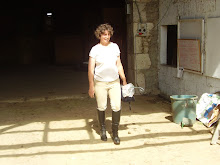In 1967 I received a letter from the Peace Corps saying that I was accepted as a Volunteer trainee and assigned to teaching English in east Cameroon. I remember I had to look Cameroon up in the National Geographic collection of the Culver-Stockton library. I discovered that it was in the crook of Africa. (Some people, referring to the hot, sweltering climate, say armpit.) And that it had giant frogs. This was where I thought I would spend the next two years of my life. As it turned out, I spent seventeen years there before I moved on.
The Peace Corps training for our mission lasted three months. The first month was in Boston where we were given French lessons eight hours a day, five days a week. The lessons were designed for soldiers. You learned a dialog by heart and then you were drilled on it. It was repetitive, rapid-fire and mind numbing, but we were highly motivated and convinced this was the way to teach.
The second month was in Dartmouth, where we were given more French lessons, lectures about Cameroon, its history and social conditions and how to teach English as a foreign language. I have retained very little of those lectures except that I was envious of the people assigned to West Cameroon because they were being given lessons in Pidgin English. At one point I was told to teach English to a family from Cambodia. I was instructed not to use French and vaguely remember that they understood next to nothing of what I tried to teach them. From that experience I gained an immense respect for those who teach English to students with no common language.
For the third month we were sent to Quebec so we could practice our skills on French-speaking children. We were hosted by Canadian families as part of our immersion experience and I discovered that my Bachelor of Arts, French major, cum laude did not enable me to understand French Canadians. I remember very little about the lessons I gave or about my students, just that it all seemed very artificial. I was pretending to be a teacher and they were pretending to be pupils. I was speaking in English all the time and they were staring at me with bewildered looks. I was told that a teacher had to speak only in the target language, but no one told me that you also had to be comprehensible. I now know that history calls this "the Natural Approach".
Then we flew over the ocean and I eventually ended up in Kribi, Cameroon, a lovely little port on the Atlantic ocean. I was equipped with a bicycle to get to school, a thin, paperback textbook with dialogs, vocabulary lists and grammar exercises, a flannel blanket and cardboard cut out figures to illustrate the dialogs. Since many of the schools had no reliable source of electricity, we hung the flannel blanket on the wall and stuck the cardboard figures to it to help our students visualize the characters' actions.
So my career as a Teacher of English to Speakers of Other Languages began. I had four classes, sixième, cinquième, quatrième and troisième. There were 60 twelve year olds in my sixième class. The next grade had only 45, there were less than 30 in my quatrième class and less than 20 in my troisième class. I later discovered that students who had reached the troisième were considered scholars and some actually taught part time in the local primary schools.
It was a wonderful way to begin teaching. Most green teachers are immediately confronted with discipline problems. My students desperately wanted to continue their studies, knowing that education made the difference between comfort, even luxury, and severe poverty. They wanted to learn English, the key to so many doors, especially in Cameroon where the two official languages are English and French, and they treated me with far more respect than I warranted. For many of them I was the first white woman they had ever actually spoken with.
I remember one day I was teaching the sixièmes when a big tropical storm broke out. The rain was coming down so hard that the noise on the tin roof drowned me out. It was coming through the windows, which had no glass, only chicken wire, so we had to close the shutters. There was one small naked light bulb, but the power was off because of the storm. So there I was, in the dark with sixty pupils who couldn't see me or hear me. Needless to say that I could see them even less because of their dark skins. I shouted at them to take out their notebooks and do exercise 4 in their books. There was not enough light to read by, but all sixty students took out their notebooks and pretended to do the exercise until the storm blew over and I could go on with my lesson.
With students like that, who needs to worry about teaching methods? ........ (to be continued )
Sunday, December 23, 2012
Subscribe to:
Post Comments (Atom)

No comments:
Post a Comment